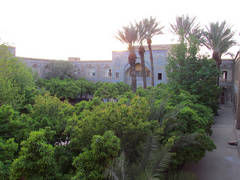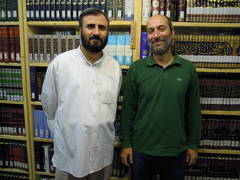Details
Greek Philosophy in Persia
How deep are the roots of our culture? What the pre-Safavid culture knew about Greek philosophy? What role did play the Safavid dinasty in transmitting it at the early beginning of modern Persian history?Since 2007, Marco Di Branco is studying the collection of Graeco-Arabic philosophical works from the pre-Safavid and Safavid era, their continuity in pre-Modern Iran and its importance. Within the frame of Greek into Arabic, working together with Gerhard Endress, he was able to discover more than sixty manuscripts little known before. Some of these are manuscripts of the ps.-Theology of Aristotle, but many others contain Arabic philosophical works issued from the translations of Greek philosophical works. "The analysis and classification of the texts that have been transcribed, read and annotated will allow scholars to assess which works have been deemed important to be read, from the end of the Safavid era to the beginning of the modern times. The Greek into Arabic project and the European Research Council supported this work and made it all possible; the idea of supporting long term basic research like that at Greek into Arabic does lead to breakthroughs", says M. Di Branco.
The Madrasa-i Khan seminary, founded by Khan Imamqoli's father and completed in 1024 AH/1615, had been established with the purpose of teaching philosophy and science. Mulla Sadra was teaching there, and there he completed the "Four Journeys" (al-Asfar al-arba'a) in 1038 AH/1628. In the same year the English traveller Sir Thomas Herbert described the Madrasa: "and [indeed] Shyraz has a colledge wherein is read Philosophy, Astrology, Physick, Chemistry and the Mathematicks; so as 'tis the more famoused through Persia" (Herbert, Some Years Travel, London, 1634, p. 129).
< Now Available: GALex, 11





